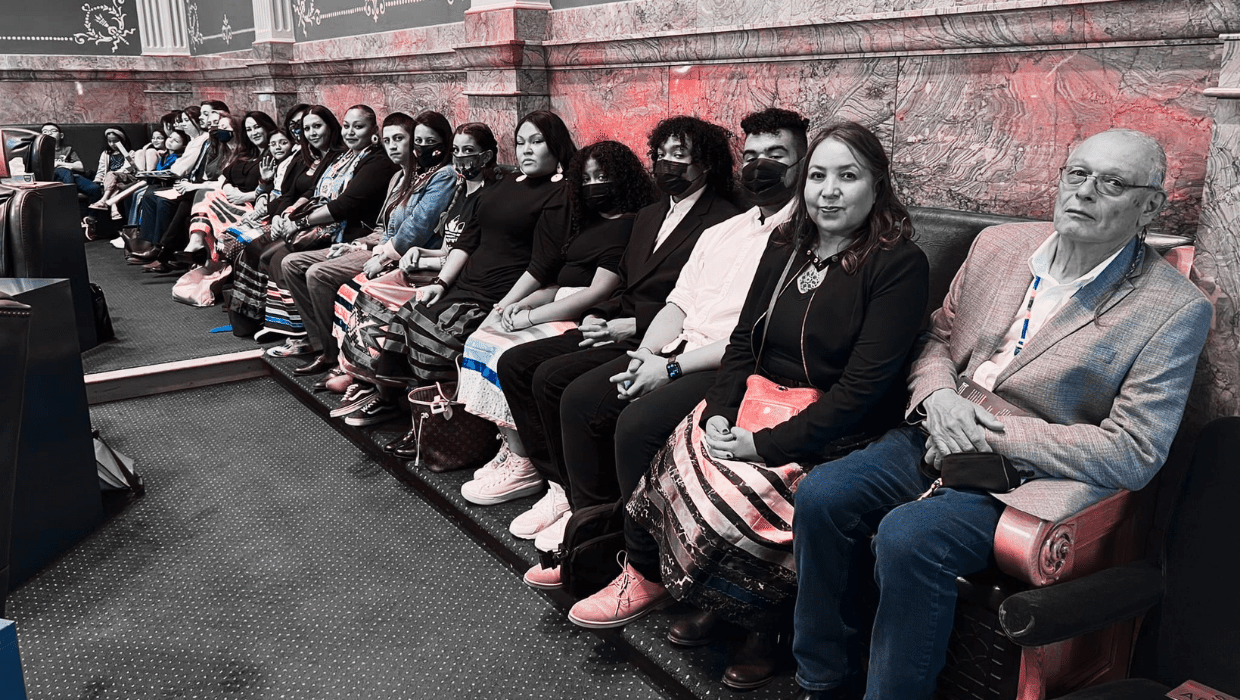The Laboratory to Combat Human Trafficking (LCHT) fully supports the passage of Senate Bill 22-150, which seeks to establish the Office of Missing and Murdered Indigenous Relatives within the Department of Public Safety in Colorado. We encourage our allies and supporters in the anti-trafficking movement to learn more about this important legislation and encourage Governor Polis to sign SB22-150 without further amendments.
Human Trafficking and Tribal Communities
Human trafficking includes labor and sex trafficking, and at its core is about an individual forcing, defrauding, or coercing someone into labor or sex work. There is a long list of factors that render people vulnerable to trafficking, including:
- Previous trauma
- Violence in the home/community
- Lack of access to resources to support survivors in rural communities
- Lack of understanding among first responders or service providers about what human trafficking is and how to identity its victims
Native Americans, on and off reservation, have unique vulnerabilities that make them a target for traffickers, who have been operating with impunity for decades. The Department of Justice Executive Office for United States Attorneys General commented on the unique intersections of vulnerabilities for Native Americans and severe exploitation:
“Traffickers target individuals they believe will be unable to escape, unwilling or too afraid to cooperate with law enforcement, and likely to be simply overlooked, forgotten, or ignored by society. To be marginalized is to be vulnerable—every minute of every day and at every turn. This truth is magnified in tribal communities where resources are scarce and help may be hours away.”
Department of Justice Executive Office for U.S. Attorneys General, 2017
In the national anti-trafficking response, we see a prioritization from many federal offices to fund, research, and support tribal communities around the country to identify trafficking and improve community-coordinated responses. The most recent National Action Plan for Combating Human Trafficking specifically calls for recommendations on how human trafficking programs can better support and collaborate with Native American communities and bolster effective prevention and intervention efforts.
Support for Native American Survivors in Colorado
Here in Colorado, our response is patchwork at best. Cases of missing and murdered Indigenous relatives are met with unique challenges including jurisdictional complications and a lack of clear protocols for interagency cooperation. LCHT knows directly from calls to our office and Colorado’s 24/7 Human Trafficking Hotline, that many survivors who call in with tips or in a crisis situation are not getting support. Many are being either ignored or passed around across jurisdictions. Others feel isolated and report a lack of culturally appropriate resources, a reality only exacerbated by COVID.
Even with a statewide resource directory and law enforcement contacts with the Colorado Bureau of Investigation, the Federal Bureau of Investigation, the Colorado State Patrol, and many local law enforcement agencies—we are still experiencing enormous challenges in supporting Native American survivors. We simply cannot expect people to report incidences of human trafficking if they are not believed, if their lives and their children’s lives are in imminent danger and nothing can be done because it is “out of someone’s jurisdiction.”
What we do know from direct service providers in Colorado is that positive outcomes are associated with reporting. When people receive justice, others will come forward. When people know they will be believed and that our laws are designed to protect them, they come forward. And ultimately when people come forward, perpetrators are held accountable and our communities are safer.
While punishing perpetrators is important for public safety, this is not just about criminal justice. Establishing an Office of Missing and Murdered Indigenous Relatives communicates to 100,000+ Indigenous people across our state that we value the people that came before us and exist among us. They too deserve access to justice.

We know violence against our Native American community members is too high and disproportionately so. These facts are indisputable. To the extent the State is doing anything to address the Missing and Murdered Indigenous Relatives (MMIR) issues in Colorado, it is wholly inadequate. An office focused on these specific crimes is critical if we want to address what is happening to Native Americans far too often in Colorado. We are responsible to more effectively address this terrible situation of an historically marginalized people. We have an opportunity to be at the forefront with a handful of other states to start to remedy some of these issues.
Show Your Support Today For the Passage of SB 22-150
And that’s where you can make a difference today. Please join us in supporting the passage of this bill during the 2022 Colorado Legislative Session. Here is what you can do today:
- Read the SB 22-150 Fact Sheet and learn who else is supporting this legislation
- Call, email, or tweet the Governor and Lt. Governor today to express your support of SB 22-150
- Follow the status of SB 22-150 in the Colorado General Assembly
